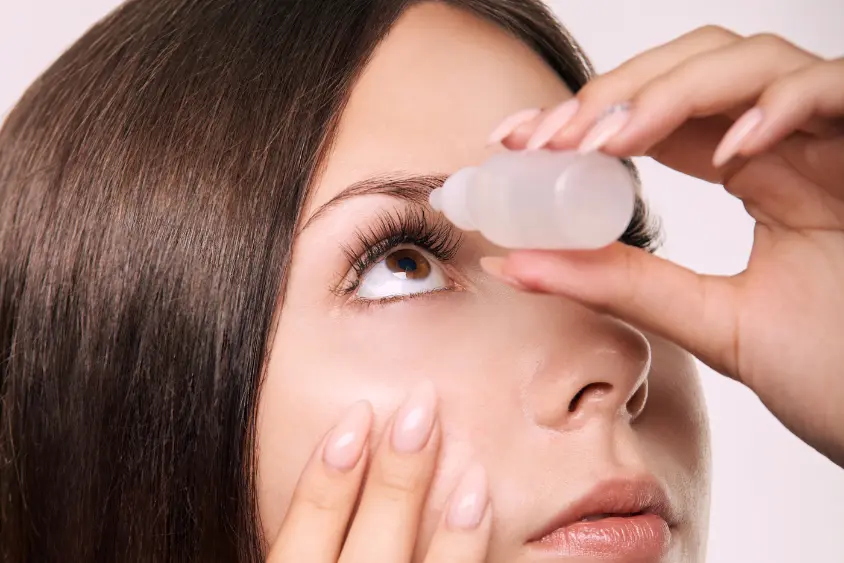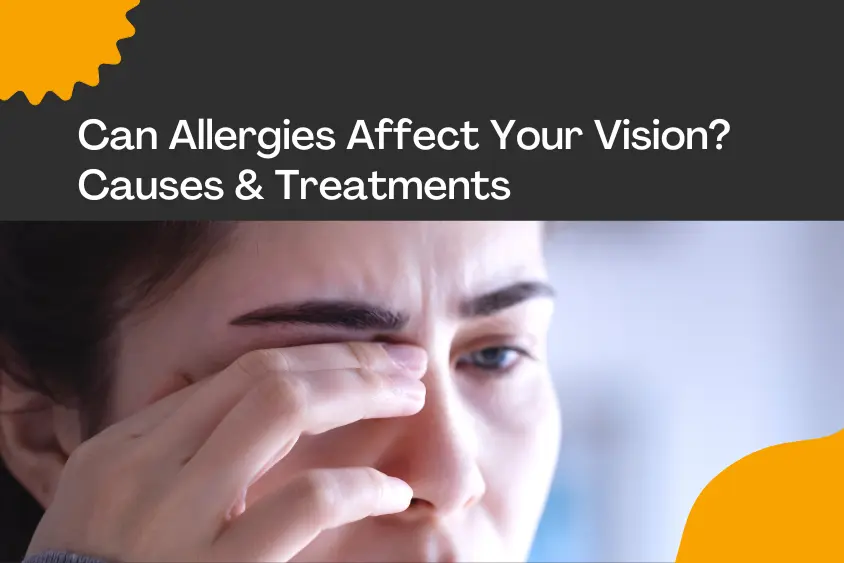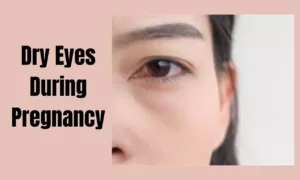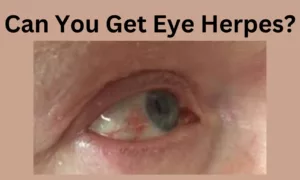The human body is a remarkably marvellous and compassionate creation. It is also aggressive, quick, and thorough in its defence mechanism, equipped with organs and systems to react to threats. Allergies are one of these responses that the human immune system executes towards any foreign substances, which in most cases are entirely harmless, such as plant pollen or certain foods. This foreign substance is scientifically termed an “allergen.”
The eye, one of the most complex and advanced organs of the human body, is also prone to allergies and capable of responding to them. However, many of you might be wondering around asking for the proper guide of can allergies affect your vision. Thus, here in this article, we are going to decipher and unwind the question of can allergies cause your vision to be blurry its causes, solutions, and more. Let’s explore!
What Is An Eye Allergy?
Allergies are commonly a result of seasonal plant pollen in the air, contact lenses, dust, smoke, chemicals, pet fur, fungi, mold, insect contact, and contagion from one patient to another. The eye responds to different allergens through different symptoms, and the results can vary from one individual to another. The eyes may become dry, itchy, swollen, redden, secrete water or gels, sensitive and opposed to light, and experience variation in vision.
Eyes release chemicals called histamines when a foreign substance enters them. Histamines are generally created in the body to regulate our sleep cycles and enhance cognition. Still, during an allergy, they can cause irritation or other undesirable effects, such as inflammation and swelling of the eyes and eyelids. This swelling occurs due to the enlargement of blood vessels; the resultant pressure can cause blurry vision.
Allergens entering the eye may cause increased mucus production along with tears; this mucus may not be transparent and can affect the consistency and sharpness of regular vision. When dried up, this mucus can cause the eyelids and eyelashes to stick together, which, though it may not affect vision, still proves to be highly uncomfortable and requires excellent care and treatment.
Can allergies cause blurred vision and dizziness?
Yes, it’s true that allergies can affect your vision baldy. Most of the allergic reaction results in itchy yet irritated eyes with blurred vision, dizziness, and discomfort. Hence, it won’t be wrong to say in response that can allergies affect your vision that they do affect. Well, there are an array of reasons why allergies affect the vision.
What Causes Eye Allergies?

- In the plant season, when pollen is in the air, people prone to allergies are recommended to protect their eyes by wearing glasses or staying indoors. Windows are advised to be closed inside houses as well as in cars. Pollen counts are max. In the mid-morning and early-evening, especially when the weather is windy. Therefore, it is highly recommended that people who are pollen allergic remain indoors during these times and venture outdoors only when necessary, wearing the proper eyewear to protect their eyes from coming in contact with pollen particles in the atmosphere.
- Dust in houses is a common cause of eye allergies because the dust particles may contain very fine irritants that settle inside the eye. These particles enter the eyes with the air during cleaning or dusting. This is why people prone to allergies must protect and shield their eyes before performing any cleaning tasks involving contact and exposure of their eyes to dust. Using a damp cloth or mop for cleaning surfaces versus a dry broom is preferred to not set off dust, which can enter the eye and cause allergies.
- Smoke and exposure to chemical vapors can also inflame the eyes and cause allergies, especially for people who are newly exposed to these elements in high quantities. Another major cause of eye allergy is fungus or mold, which may not be easily visible to the naked eye but can grow extensively on pillow covers, bedsheets, and blankets due to poor hygiene or damp and humid weather. Allergies which result from fungi and molds are also generally contagious.
- Pet fur is also a cause of allergies among patients who have sensitive eyes. Therefore, washing hands before touching the eyes and face is always recommended to avoid any irritable substances from coming in contact with the eyes. For individuals who wear contact lenses or eye makeup, the best way to treat allergies is to keep their eyes free of lenses and makeup when affected.
How Do Eye Allergies Affect Vision?
The vision effects caused by allergies are temporary and fade once the allergy ends and the body completely removes the foreign substance, washing it out thoroughly and permanently. However, in some cases, the effects on vision could be longer lasting, especially if the allergy is left untreated and matures into eye disease or combines with nasal and skin diseases such as eczema in the surrounding areas.
The inflammation caused by histamine and mucus production can also result in blockage of the tear glands in the eyes. This will lead to dryness of the eyes and an itchy sensation when people scratch their eyes constantly. As a result, they could damage the sensitive tissues in their eyes and affect their vision. To avoid this, the best solution is to hydrate the eyes well.
Other symptoms from more severe allergies include pain, the sensation that something is in the eye, though there isn’t anything there, and, in more severe cases, ulcers on the eye surface and eyelids.
What If The Allergies Are Left Untreated?
If allergies are left untreated, the enlargement and inflammation of blood vessels due to histamine production and associated immune responses can cause increased eye pressure and abnormal blood vessel enlargement, eventually damaging the optical nerve. Therefore, eye allergies should be given proper attention and medical treatment because if left untreated and allowed to worsen over time, they can cause temporary loss of vision and, in some cases, partial or complete vision loss.
How Are Eye Allergies Treated?

Typical allergy treatments are eye drops, tear substitutes, cold presses, oral medicines, and allergy shots. Prevention is better than cure; protecting the eyes from harmful allergens is the best avoidance mechanism. Shots can also be a great form of prevention since they strengthen the human immune system. Allergy shots contain fewer amounts of the allergen, which, in essence, is harmless to the body, and over time, the dose of the allergen is increased. Thus, the body gets accustomed to the allergen and drops its immune response in case of contact with it. Therefore, when contact with the allergen occurs, the body has no autoimmune response, and no allergy is created.
Any medical treatments for allergies may have side effects such as dizziness, blood pressure variation, and body dryness. They should be used after consultation with a medical practitioner, even if the medicine is mild and has been purchased over the counter, since the eye is a susceptible organ and substances entering it may cause tissue damage and affect vision.
Conclusion
Thus, we know that a query of can allergies affect your vision is true, and they do implicitly affect the vision, leading to the blurry version or irritation with readiness. It is recommended to take care of it with as much care as possible and avoid the major causes.
FAQs:
Can allergies cause double vision?
Yes, mostly allergies cause double vision especially when there is inflammation, swelling, or eye irritation.
Can seasonal allergies affect your vision?
Yes, for the question of can seasonal allergies cause vision problems. So, it’s true that seasonal allergies can affect vision and bring a lot of vision problems. The seasonal allergies most caused during the specific season lead to symptoms such as itchy, watery & red eyes.
What can I expect if I visit an allergist?
An allergist trained to treat eye allergies will enquire about the patient’s medical history and examine their eyes with a microscope. He may also test for a specific type of white blood cell in the eye, which the body produces to combat allergies.
Why do my allergies only affect one eye?
An eye allergy in one eye is mostly uncommon. However, there are a few basic reasons such as localized exposure to asymmetrical allergic response and more.
Do eye allergies generally affect vision?
In most cases, eye allergies do not affect vision and may only cause temporary blurriness during the length of the allergy.






